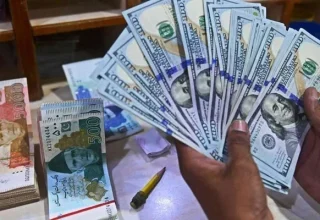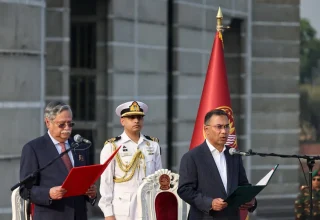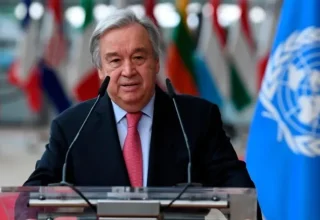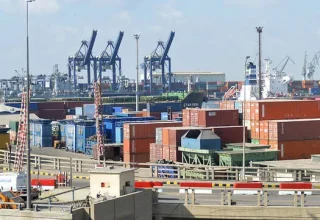
KARACHI: In the absence of fresh triggers and expected higher dollar demand from importers towards the end of the month, the rupee is expected to remain limited against the US dollar next weeks.
The local currency, in the outgoing week, fell 0.29% against the dollar in the interbank market. On Monday, the rupee closed at 284.97 against the dollar against 285.82 on Friday.
However, in the open market, the domestic currency reportedly traded at a premium of Rs15 over the interbank rate. According to rates provided by the Exchange Companies Association of Pakistan (ECAP), the rupee touched a record 300 rupees against the dollar in the open market during the week.
A currency dealer said: “The course of the rupee next week will be determined by dollar supply and demand. As importers enter the market to buy foreign currency to meet seasonality, the rupee will depreciate [month-end] demand.”
“We expect the rupee to trade at 285-286 per dollar next week,” the dealer added.
For local currency, exporters are not selling forwards. In fact, due to the high cost of holding dollars (or rupee interest rates), most exporters are settling their earnings relatively early, Tracemark said in a weekly note.
“As importers, though they cannot book forwards, it is not right to materially spend Rs.300 per dollar. These market factors indicate that the rupee is range-bound between 280-300 levels for the time being,” it said. “Certainly, any negative trigger will destabilize it, as can be seen with Imran Khan’s arrest during which the dollar traded at 299 rupees.”
June will be heavy with government-related outflows and the rupee will remain under pressure in the coming weeks, but may not cross Rs 300 per dollar in the interbank market, the note said.
“While Pakistan’s credit default swaps were largely unchanged over the past two months, bond prices trading below 50 cents to the dollar suggest investors are pricing in a default,” said Tresmark.
If Pakistan fails to secure financing, the rupee could fall as low as 350 to the dollar in June. Bloomberg An analyst was quoted as saying.
The IMF will not provide a bailout, which is needed for Pakistan to avoid default in the fiscal year starting in July, according to analysts, which is increasing and is why capital is leaving the country.
Pakistan’s balance of payments position continues to be under pressure, with foreign exchange reserves still at a low level of $4.3 billion – barely enough to cover one month’s imports.












































